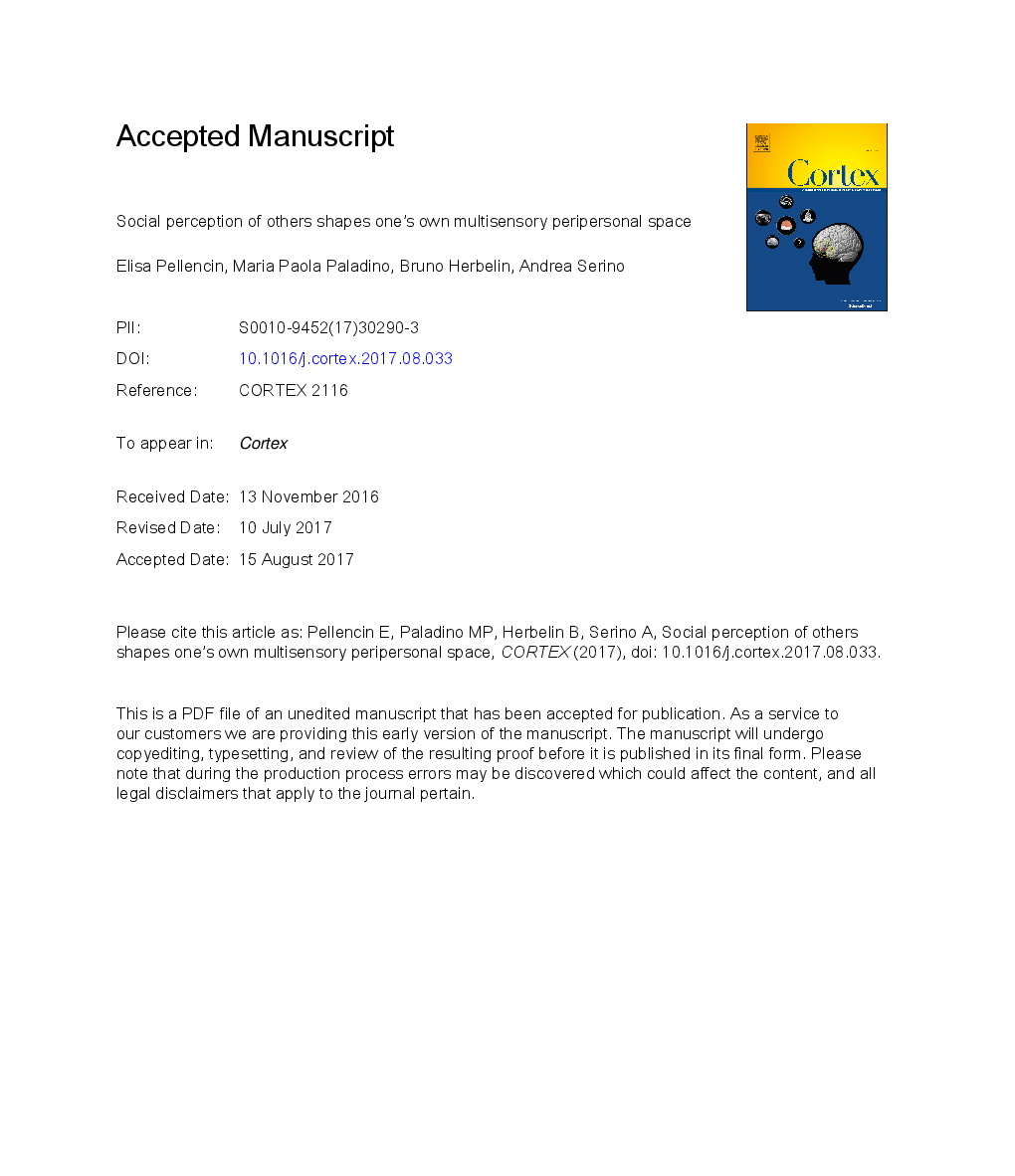ترجمه فارسی عنوان مقاله
ادراک اجتماعی دیگران فضای شخصی خود را چند برابر می کند
عنوان انگلیسی
Social perception of others shapes one's own multisensory peripersonal space
| کد مقاله | سال انتشار | تعداد صفحات مقاله انگلیسی |
|---|---|---|
| 153806 | 2017 | 47 صفحه PDF |
منبع

Publisher : Elsevier - Science Direct (الزویر - ساینس دایرکت)
Journal : Cortex, Available online 6 September 2017
ترجمه کلمات کلیدی
فضای پرسپولیس، ادراک اجتماعی، اخلاق، نمایندگی بدن، فاصله بین فردی،
کلمات کلیدی انگلیسی
Peripersonal space; Social perception; Morality; Body representation; Interpersonal distance;

